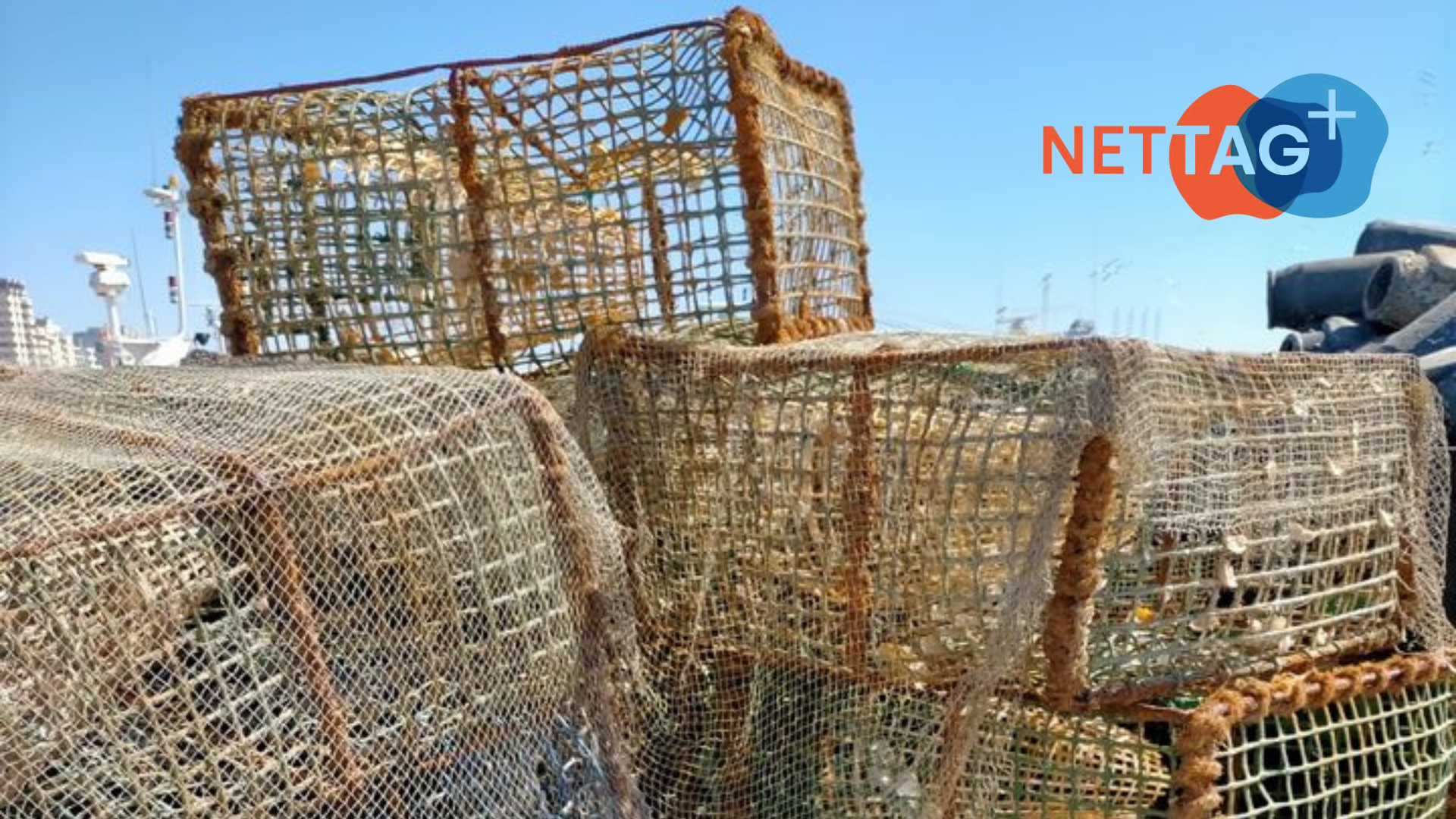Cristina Pita (CESAM/DAO) is the researcher responsible for UA’s participation in the NETTAG+ project, which began in early May. The researchers involved in the project aim to develop innovative and sustainable solutions to prevent, avoid, and mitigate the negative effects of marine litter produced by the fishing sector on marine ecosystems.
In July, the European Commission announced the funding of a total of 18 projects to contribute to the EU Mission ‘Restoring our Ocean and Waters’, worth over 106 million euros. Among these projects is NETTAG+, which involves 15 partners from 7 different countries.
The motto of NETTAG+ is “prevent, avoid, and mitigate”. In this sense, the project focuses on preventing marine pollution resulting from fishing activities, working with fishermen as guardians of the oceans. The project aims to develop technology (acoustic location tags) to prevent the loss of fishing gear and mitigation solutions for the loss of abandoned, lost, or discarded fishing gear.
NETTAG+ seeks not only to reduce the environmental impacts of abandoned, lost, or discarded fishing gear but also to transform the paradigm of the fishing industry by empowering fishermen to play an active role in ocean protection.
According to Cristina Pita, the researcher responsible for the project at UA, “the NETTAG+ project follows the NETTAG project, also funded by the EU, which focused on these same themes on the Iberian Peninsula. It is very rare to have the opportunity to continue and expand a project, and NETTAG+ allows us to advance the knowledge generated previously and put into practice the work already done. It also allows us to expand to other geographical areas with high fishing activity, such as the Mediterranean Sea. Furthermore, it is also important to reinforce that one of the added values of this project is its multidisciplinarity and cooperation. NETTAG+ involves a team of researchers (including people from marine ecology, fisheries socio-economics, acoustic detection, location technology), industries from the fishing and net manufacturing sectors, and environmental NGOs. This is essential for co-creating viable solutions to the issue of marine litter.”
With a goal for 2030, the EU Mission “Restoring our Ocean and Waters” aims to protect and restore the health of our oceans and waters through research and innovation, citizen engagement, and blue investments. The mission will address the ocean and waters as a whole and will play a key role in achieving climate neutrality and nature restoration.
The EU Missions are a novelty of the Horizon Europe research and innovation program and seek to provide concrete solutions to some of our greatest current challenges.
Text based on: CESAM news in collaboration with Cristina Pita (CESAM/DAO)
